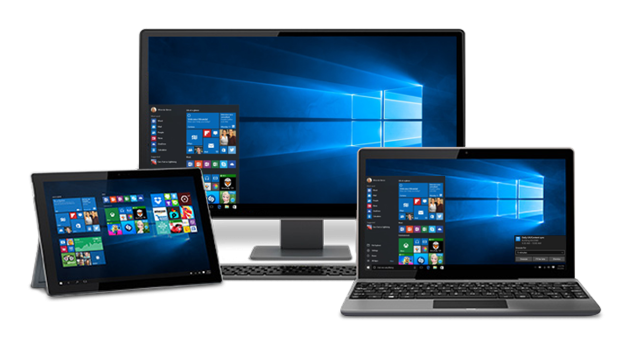With all of the recent news about Microsoft reorganizing how they internally classify their Windows division and all the issues Facebook is having with the mishandling of our personal data, it’s all-too-easy to have the knee-jerk reaction that both of their respective days are numbered. Linux fans are eager to say that their time is finally here (which they say every year) and Facebook detractors are quick to point to what that social network did to MySpace.
My “tipping point” theory maintains that once something reaches a certain critical mass, it’s all but impossible to unseat it unless something truly radical happens. I put Windows and Facebook, as just two obvious examples, in that category. Sure, there were plenty of operating systems prior to the rise of DOS/Windows, but nothing that had reached the same critical mass of 90%+ market share. Microsoft has the critical mass, momentum, and resources to maintain a mass majority of the OS market share for at least another decade, and probably several more assuming something truly radical doesn’t happen (an example of something radical is that using your smartphone as your computer suddenly becomes appealing).
In terms of Facebook, everyone likes to point to what happened to MySpace, but MySpace was just a relative blip in time and certainly didn’t pass the critical mass tipping point. Facebook now counts its active users in billions, with a b, and again (stop me if you heard this) has the critical mass, momentum, and resources to maintain itself as the dominant social media network for at least another decade, and probably several more assuming something truly radical doesn’t happen (an example of something radical in this case might be the unexpected rise of a “superior” (more appealing) alternative, which is easier said than done – just ask Google and Apple).
Now, in terms of Windows, and, by extension subscription services like Office and Photoshop, there are those out there who bring up the very real alternatives, including Macintosh and Linux on the operating system side, and, on the app side, all of the free Office-like programs for Office and open source alternatives to Photoshop like GIMP. However, there’s more to it than just being a similar alternative, free or not.
It’s an issue of being “mostly compatible” versus being 100% compatible. It’s hard enough in the business world to accommodate for different versions of Word, as just one example. For instance, in my day job I’m a Senior Technical Writer for a company that supports the air traffic control industry, and even maintaining the integrity of relatively straightforward templates when going between different versions of Word is difficult. If I had to worry about programs that were only partially compatible, or did things or reacted just slightly differently than Word, I’d go really nuts. And frankly, as good as many programs are, it really is hard to truly substitute for certain programs like Photoshop, InDesign, Acrobat Pro, etc., when a specific file format or feature-set is needed, particularly as you transition from, or interact with, legacy versions of files.
For the average person, I think none of that really matters – any decent tool would be fine, even the free browser-based ones (and that’s often what I recommend) – but as long as there’s a stranglehold on this stuff in the professional world (and for those who need to interact with the professional world), only the “real deal” will do, if only for the fact that you can ensure better compatibility and that it’s a known entity. The same applies to Windows, of course–and it’s not just the lack of sophistication of users as some would like us to believe. It would be real work and expense to transition away from what’s been the standard for decades, and the benefits wouldn’t necessarily make themselves felt in terms of greater productivity and related cost savings.
It’s kind of like with Facebook. For all the bitching about it (both absolutely justified and not), it long ago reached the type of critical mass that will be impossible to upend in the short- or medium-terms, no matter how much they bungle things behind-the-scenes. (And boy are they bungling, which is leading to an exodus of users, but percentage-wise, it’s just a rounding error.)
And to address the obvious, Linux has of course succeeded masquerading in the form of Android on mobile, but obviously not on the desktop. There had to be a new category of devices, unhindered by a massively entrenched entity, for it to find its footing. Of course, it didn’t hurt that a large company like Google has been the guiding hand either. Google is Android, and there’s no real equivalent, no real god-like guiding hand, on the true Linux side.
To summarize, there’s the wishful thinking when you’re personally not really a fan of something like a Windows or Facebook, and then there’s the reality of how hard it is most of the time to unseat a powerful, post “tipping point,” incumbent.






 Your total news and information resource for all things Science, Technology, Engineering / Mathematics, Art, and Medicine / Health.
Your total news and information resource for all things Science, Technology, Engineering / Mathematics, Art, and Medicine / Health.
Leave a Comment